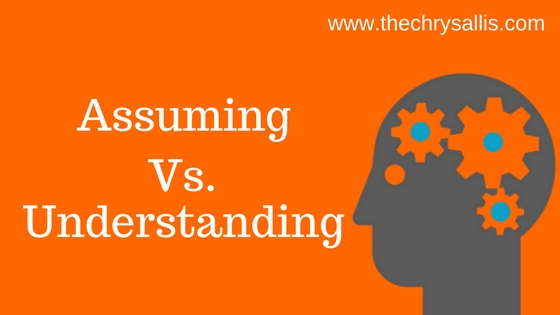Dare To Be A Diamond – Mark Of A Leader

We all know that most diamond crystals have eight facets and each of them reflecting light and adding brilliance.
Like diamonds, we as leaders are called to reflect the Light and to shine the way for others. And like these rare, precious stones, we as leaders can radiate brilliance from eight facets: vision, integrity, motivation, learner, listening, prayer, attitude and servant-leadership. These eight facets are not universally upheld by every expert as being the most important qualities in leadership – they are simply eight characteristics that I personally value in a leader.
1. A Great Vision
The very important attribute of leadership coach is vision. The greatest motivational principle in the world is this: people do what people see. People did not follow a dream itself. They follow the leader who has that dream and the ability to communicate it effectively. Vision in the start-up will make a leader, but for that vision to raise and demand a following, the leader must take the charge.
One of the attributes of a diamond is that they have power to break light up into the colours of the rainbow. You have all seen the shining of a diamond in the sun or under a bright light. That shining is eye-catching; it takes your attention. And so it is with us as leaders. When we break up the light of our vision into a colourful rainbow, a desired picture of the future that can be visualized and understood by our teams & employees, then we have begun the work of a leader – to cast vision. Never miscalculate your diamond-like peculiarity to bend light and break it up into a colourful picture.
2. Integrity
Webster defines integrity as “the quality or state of being complete or undivided.” A person with honesty is not guilty of hypocrisy or duplicity. People with integrity have nothing to hide and nothing to fear – they are like an open-book.
Diamonds are categorized according to four basic qualities: weight, clarity, color and cut. Clarity is simply the quality of being clear. Clarity in diamonds is decreased by flaws – inclusions, small bubbles, cracks and substances that cloud the diamond. A leader with integrity will welcome values of honesty, commitment, strong & consistent moral codes, treat everyone with respect and build trust.
3. Motivation
A good leader has the natural ability to attract, energize and encourage his teams. There are three kinds of people in this world:
1) Those who don’t know what’s happening
2) Those who watch what’s happening
3) Those who make things happen.
Motivators are the movers and shakers of this world; they make things happen. They aren’t discouraged by conflict – they anticipate it and plan for it. They are always ready to work in any condition; they understand that innovation and new ideas will not necessarily be readily accepted by anyone. In fact, it will be a challenge to pioneer change. But it is their personal enthusiasm and inner strength that will continue to fuel their desire to see change occur, because they have a vision and a dream that they are willing to sacrifice for.
Motivators are not procrastinators and do not put off till tomorrow what can be done today, because they have come to understand that tomorrow might never come.
The energy and enthusiasm of a motivator is used to influence his teams by:
- Showing them how– When we take on a project, rather than just continuing to talk about it or dream about it, we start planning through the details, overcome obstacles along the way and see the project to completion and we motivate our teams to do the same.
- Delegating– We encourage others to perform and excel when we delegate responsibility and authority to that person. When we gave our authority in order to share that with someone else, we are saying to them, “I believe in you and I know you can do this”, even though the ugly nub of fear is tightening your stomach and making you afraid that they can’t do it as well as you. Leaders must remember that they are here because someone believed in them and someone gave them an opportunity.
- Encouraging– Our encouragement for others can be demonstrated in many ways – from our body language and listening ability, to our spoken word and written thanks. It reveals our incurable confidence and faith that our god-self will continue to fine tune us at every stage required.
hatever we do, we need to communicate our genuine enthusiasm for each and every person. We need to affirm who they are, remind them of their strengths and God-given abilities, remind them that we are all still in process and remind them that although failure is necessary, it is an opportunity to begin again.
Just as iron sharpens iron, so the only way that a diamond can be cut is by another diamond. We have to be willing to intensify interpersonal relationships with our potential leaders in order to motivate them to bloom, to grow, to lead. In the process of cutting another diamond, you will most likely be required to reveal your own personal struggle story of failures, of weaknesses and how you are overcoming them. Relate to them your victories and celebrations. It’s a risk on your part, but a potentially strong motivator for others.
Read this: Why you need Executive Coach?
4. Learner
As leaders, one of our greatest privileges, as well as responsibilities, is to train other leaders. If we are truly dedicated to the vision that is giving purpose to our leadership, then we need to be dedicated to the on-going success of that vision by having successors. We multiply our influence as leaders many times over when we mentor potential leaders who share our vision and are committed to seeing it become a reality.
I remember a great example here, Chuck Swindoll said, “The disciples personified Christ’s teachings and they qualified as men who could carry on His work without His needing to be present. They had been made into true disciples.”
In being a learner, I want to encourage you to strive for three things:
1) Develop the ability to see potential in others.
2) Pray for patience and toleration with your people.
3) Develop the desire to assign meaningful work to others.
Tons of rock crushed in order to produce one small diamond. If you go into a mine looking for diamonds or prospective leaders, you will find them. And once you have found them, you need to carry on the work of transforming them from a raw diamond to a fully cut, brilliant diamond.
5.Listening
It is our human nature to typically seek first to be understood. Many people are not listening with the purpose to understand; they are simply being quiet while they formulate their rebuttal or reply.
Also, many of us are shamefaced of clarifying everything through our own set of glasses – we read our own autobiography into other peoples’ lives (“Oh, I know exactly how you feel”, “I went through the very same thing. Let me tell you what happened to me.”) Then there are those who listen because they feel duty-bound to advise.
Very few of us practice sympathetic listening, which is listening with the purpose to understand. It means getting inside another person’s frame of reference. You look at the world the way they see it; you understand how they feel; you listen with more than your ears; you listen with your eyes and your heart as you search for feeling, meaning and behaviour.
A person will always face difficulty as a leader if he/she doesn’t learn to listen to people. Foundational to that is a sincere desire to understand other people.
Diamonds are valuable – they are worth high-priced because they are rare, desirable and highly treasured. Leaders who listen and who pray – leaders who communicate – are valuable to their employees and teams, but they are also valuable to everyone in their personal lives. As we seek first to understand then to be understood. We become very valuable to those we listen to because through our sympathetic listening we communicate acceptance, affirmation and trust.
6. Prayer
We communicate in two dimensions:
- The horizontal dimension (with people)
- The vertical dimension (with God)
Within that vertical dimension of interacting with God, there is the component of God speaking to us – through His Word, through His Holy Spirit and the element of us speaking to God through prayer.
Oswald Sanders writes this about the leader and prayer: “Most of us find it hard to pray. We do not naturally delight in drawing near to God. We sometimes pay lip service to the delight and power of prayer. We call it indispensable; we know the Scriptures call for it. Yet we often fail to pray.”
Why don’t we pray? I think one of the most frequent excuses I hear is, “I’m too busy to pray!”
I am convinced that the key to learning the art of prayer is the self-love and love for others. I can read every book on prayer, attend prayer conferences, fast and pray, and seek all kinds of accountability, but until I seek the love for myself and others as my teacher, my prayer life will never grow or develop. And as a corporate leader, it is vital to communicate with own god-self – to have focus, clarity of vision and direction, to gain wisdom and insight.
Read this: The Fundamentals of Corporate Training
7. Attitude
One of the greatest advantages that a leader can have is a positive attitude. A benchmark of maturity is taking personal responsibility for our attitudes.
We choose what attitudes we have right now. And it is a incessant choice. Our attitudes do not run on automatic. People with bad attitudes are perpetually blaming everyone or everything else for their problems. It is highly infeasible that a person with a bad attitude can continuously be a success. Once our minds are imprinted with negative thinking, our chances for long-term success fallen.
Every morning when we wake up, we choose what our attitude will be. Having the right attitude will be a big factor in setting the right atmosphere. It will bring about right responses from your teams. A leader’s attitude is “caught” more quickly than his/her actions.
Diamonds have a lasting quality – they endure. That is why they are chosen as stones for wedding rings. They stand the test and stress of everyday living. Their settings or mounts may wear down, but the diamonds themselves endure. They can even be passed down from one generation to another.
8. Servant-Leadership
Combining the terms “leader” and “servant” brings us to a paradoxical term. Some people would regard it as a classic example of the proverbial square peg in a round hole: servant-leader. How can a leader who is driven to see a vision become reality, achieve that by taking on the role of a servant?
Our answer lies in the best biblical example we have of servant leadership – the person of Jesus Christ. Matthew 20:25-28 reads as follows:
“But Jesus called them to Himself and said, “You know that the rulers of the Gentiles lord it over them, and those who are great exercise authority over them. Yet it shall not be so among you; but whoever desires to become great among you, let him be your servant – just as the Son of Man did not come to be served, but to serve, and to give His life as a ransom for many.”
By Christ’s example of servant leadership, it involves:
- The basic requirement to place a high priority on people rather than programs, paperwork or committees. I find it quite ironic that Jesus Himself never set up one committee, never established any bylaws, never started a church and never wrote a book. Yet He changed the world. Jesus placed high value and priority on people. His ministry is basically a story of His involvement in the lives of people over three years. He spoke, He listened and He touched.
- Secondly, Jesus had an attitude of giving, of sacrifice and of humility. We are challenged as servant-leaders to have that same attitude of sacrifice and humility.
- A willingness to do any task we assign to another. One of the best ways to develop trust and understanding with our employees and to open the lines of communication, is to be willing to get our hands dirty.
- A desire to meet the needs of our employees. We need to have a desire to know our employees as individuals and be aware of their needs.
- Empathy for others. Caring is being sensitive to another’s needs or hurts or even unspoken longings for love.
As leaders, you are diamonds. You are valuable. You have such great potential to shine, to:
- Cast vision for your leadership
- Be a clear and open book
- Motivate and spur others on as you impact them up close
- Reproduce worthy leaders as your persevere in discovering and then developing their potential
- Seek first to understand then to be understood
- Desire and pursue an intimate relationship with God-self in prayer
- Have an attitude of joy and endure in your leadership
- Empathize & Care for others.









